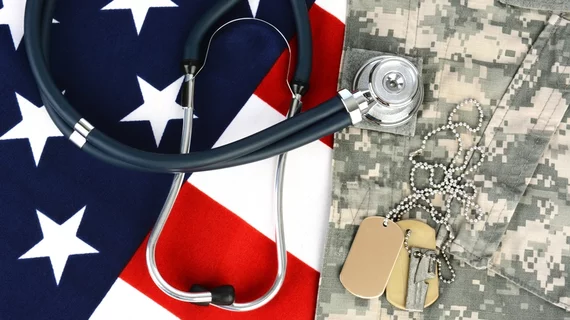NIH, VA partner to expand veterans’ access to cancer clinical trials
The U.S. Department of Veterans Affairs (VA) and the National Cancer Institute (NCI) are partnering to extend veterans’ access to clinical trials of novel cancer treatments, according to a National Institutes of Health (NIH) news release.
Launching at 12 VA facilities across the U.S., the NCI and VA Interagency Group to Accelerate Trials Enrollment (NAVIGATE) will allow veterans easier access to participate in trials performed through the NCI’s National Clinical Trials Network (NCTN) and the NCI Community Oncology Research Program (NCORP).
According to the agreement, NCI will lend infrastructure funding help for VA institutions to participate in NCI-sponsored trials. The VA will oversee organizational and operational aspects within its national healthcare system with a focus on NCI trial goals, according to the release.
“NAVIGATE is an opportunity for VA and NCI to partner at the national level to make clinical trials more accessible to veterans,” said James H. Doroshow, MD, and deputy director for Clinical and Translational Research at NCI, in the statement. “This agreement will not only provide veterans greater access to NCI clinical trials it will enhance accrual to NCTN and NCORP trials, resulting in more timely completion of these studies. This interagency collaboration will also work to help veterans overcome barriers they’ve faced trying to access clinical trials as part of their cancer care.”
The program will be managed by the two organizations for three years, during which, it is expected that VA sites can establish long-term pathways to continue participation in NCI trials after the program is completed.

